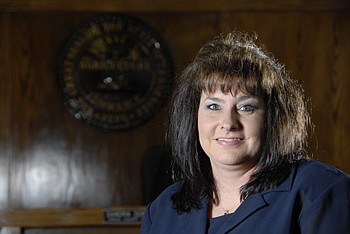CLEVELAND, Tenn. -- Beth Wineland's teenage son is a Bradley County high school student considering a career in medicine or engineering, but without intervention from the Bradley County Juvenile Drug Court, he could be on drugs and in jail.
"The support they give to parents who want to help their child is invaluable," Mrs. Wineland said.
She represents one of 50 families the Bradley County Juvenile Drug Court has served since 2006 when the court started. The court offers youths ages 12 to 18 drug intervention rather than time in a juvenile center or jail.
The court will host its ninth graduation celebration this month in recognition of May as National Drug Court month. Officials still are planning the exact date of the event, but said they'll notify participants and officials through e-mail when one is set.
The Bradley County Juvenile Drug Court Program, one of seven in the state, started after court officials noticed an increase in drug use among youths. And instead of drugs like marijuana, teenagers started using stronger drugs like methamphetamines, said Darlene Caylor, Juvenile Drug Court coordinator for the county.
She said the court is helping some young people overcome addiction. Positive drug screens among youths have decreased from 29 percent in 2006 to about 18 percent in 2009, she said.
To graduate, participants must pass random drug screens proving that they are drug free for nine straight weeks. The program allows for no relapses during those weeks.
Of the 50 participants since the program began, 21 have graduated, Ms. Caylor said.
Participants also are in almost daily contact with someone from the drug court program to hold them accountable, Ms. Caylor said.
FAST FACTThe Juvenile Drug Court in Bradley County is among more than 45 drug courts funded through the Tennessee Office of Criminal Justice Programs.Source: Tennessee government websiteCourt in sessionThe Bradley County Juvenile Drug Court is in session Monday nights at 6:15 p.m. It is located at the Juvenile Justice Center at 1620 Johnson Blvd.
Participants see a case manager every week, talk to a probation officer three to five times a week and attend drug and alcohol counseling three to four times a week, Ms. Caylor said.
They may also be in family counseling and they're required to work diligently toward getting an education, either a GED or high school diploma, she said.
Ms. Caylor said she warns parents that their child probably will get worse before getting better because taking an illegal substance is sometimes a way to cope with another underlying problem. So when the substance is taken away and the problem surfaces, she said, the child may act out until learning a new coping method.
The intense intervention is helping her teenage son stay off drugs, Mrs. Wineland said, and he's been drug-free for a year.
In February 2009, she found her son growing pot in his closet. She called the police, and he spent the weekend in jail. But then he got into the drug court program, where he has passed random drug test for the past year.
"Their support, their willingness to help me hold (my son) accountable has been invaluable," Ms. Wineland said. "You can tell it's not just a job. They are here to help kids."
